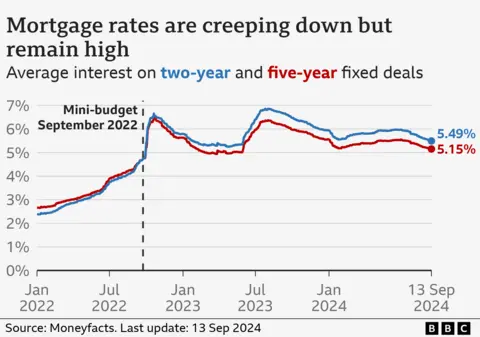Kamala Harris has raised $200mn for her White House bid in less than a week, her campaign said on Sunday, with the vice-president hoping that the surge in funding will boost her chances against Donald Trump.
Michael Tyler, the Harris campaign’s communications director, called it a “record-shattering haul”.
“Of that amount, 66 per cent came from first-time donors, further proof of the tremendous grassroots support for the vice-president,” he said.
Harris urgently needs to boost fundraising to make up for the slowdown in donations to President Joe Biden after his disastrous debate performance against Trump in late June.
Harris raised more in a week than Biden and Trump raised in the month of June, combined. Biden’s campaign raised less than $63.8mn last month, about $42mn less than Trump, according to Open Secrets.
The Trump campaign and affiliated political action committees had raised a total of about $757mn by the end of last month, campaign finance data shows — including $431.2mn between April and June.
Before he quit the race, groups linked to Biden had raised $746mn, including $332.4mn in the second quarter.
In the week since Biden ditched his bid and endorsed the vice-president to succeed him, the race has been radically reshaped.
Harris has quickly united the Democratic party behind her candidacy and gained some ground against Trump in opinion polls, compared to Biden’s performance.
She is vetting vice-presidential nominees and is expected to announce her choice in the next two weeks.
But at a fundraiser in Massachusetts on Saturday, Harris conceded that Trump remained the favourite in the election, which will be held 100 days from now, in early November.
“We are the underdogs in this race, but this is a people-powered campaign,” Harris told the donors.
At a rally in Minnesota on Saturday night, two weeks after he survived an assassination attempt, Trump lashed out at Harris, calling her “evil” as he tried to adjust his campaign to target her instead of Biden.
“If a crazy liberal like Kamala Harris gets in, the American dream is dead,” Trump said.
After the attack on his life, Trump had briefly called for “unity” in American politics. But on Saturday, he suggested the time for niceties was already over.
“They all say, ‘I think he’s changed. I think he’s changed since two weeks ago. Something affected him’,” Trump told the crowd. “No, I haven’t changed . . . Maybe I’ve gotten worse. Because I get angry at the incompetence that I witness every single day.”
On Friday, Trump attracted criticism for telling a group of Christian conservatives that they would not have to “vote any more” in four years if they helped elect him this year.
Harris and her campaign are also honing their attacks on Trump. She has sought to emphasise that he is a threat to Americans’ basic freedoms, from abortion and voting rights to economic security. She has also described Trump and his running mate JD Vance as being bizarre and extreme.
“You may have noticed, Donald Trump has been resorting to some wild lies about my record. And some of what he and his running mate are saying, well, it’s just plain weird. I mean that’s the box you put that in,” she said on Saturday.
When Biden left the race, Trump was leading by 3.2 percentage points in national polling, according to the Fivethirtyeight.com average. But since then, Harris is showing signs of closing the gap.
An ABC/Ipsos poll on Sunday showed that more voters viewed the vice-president favourably than unfavourably — 43 per cent against 42 per cent. In the same poll last week her favourability was 35 per cent against 46 per cent who viewed her negatively.
A Wall Street Journal poll showed Trump leading Harris by 2 percentage points among registered voters in a head-to-head match-up, but trailing Harris by 1 percentage point when third-party candidates were included. Some swing state polls have also shown a tighter race, including Fox News surveys that found the race between Trump and Harris tied in Pennsylvania and Michigan.
Chris Sununu, Republican governor of New Hampshire, a former Trump critic who has since embraced him, acknowledged that Harris’s entry had created “a whole new race” and Democrats would have “momentum” heading into their convention next month.
But he also said the “honeymoon” period would end in September and, as long as Trump shied away from “personal attacks” and focused on policy differences including the economy and immigration, he would have a better message.
“Hopefully the numbers, the polls, will get Donald Trump to realise what was working and what didn’t,” Sununu told ABC.
But on the same TV programme, JB Pritzker, the Democratic governor of Illinois, said the winds were visibly shifting towards Harris. “The electorate is energised. Democrats are ready to go. You’ve seen hundreds of thousands of people signing up to volunteer,” he said.

















































